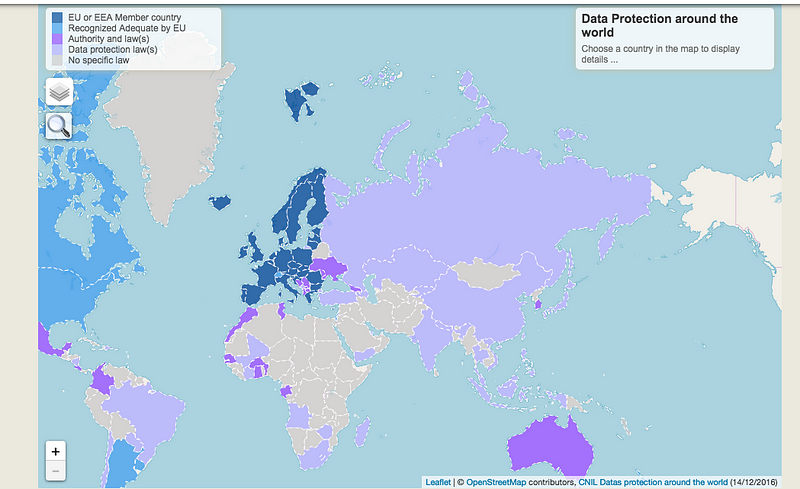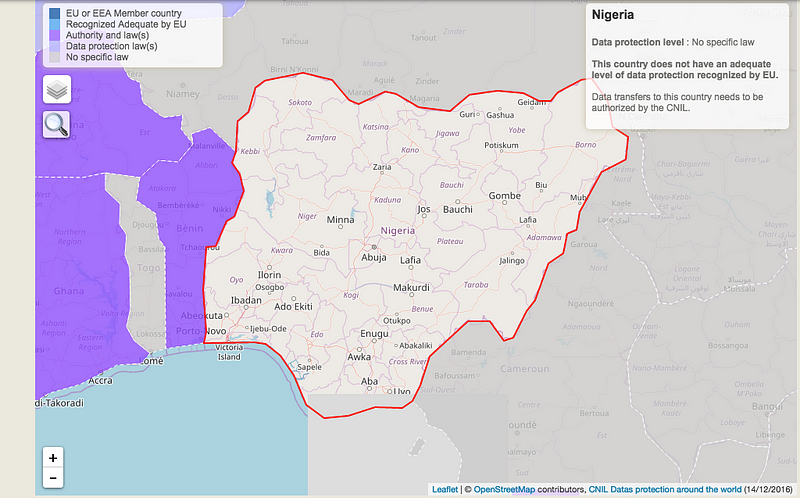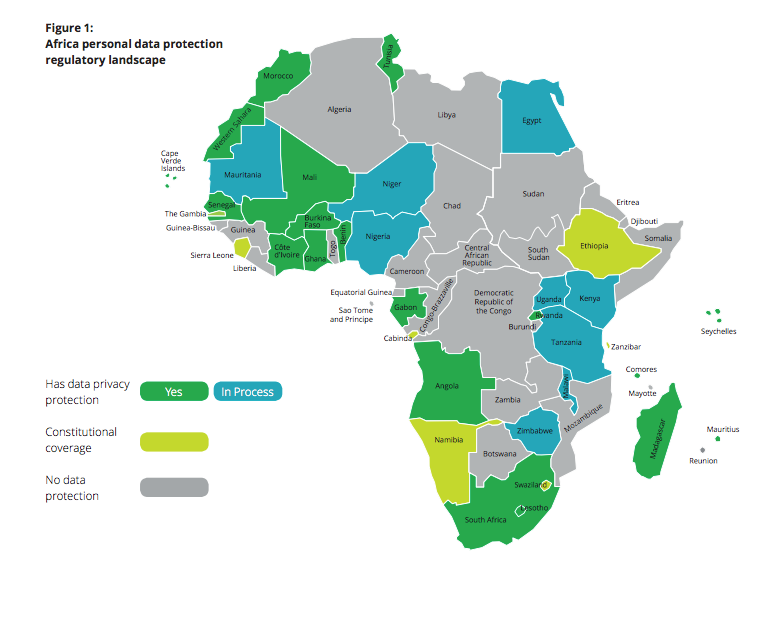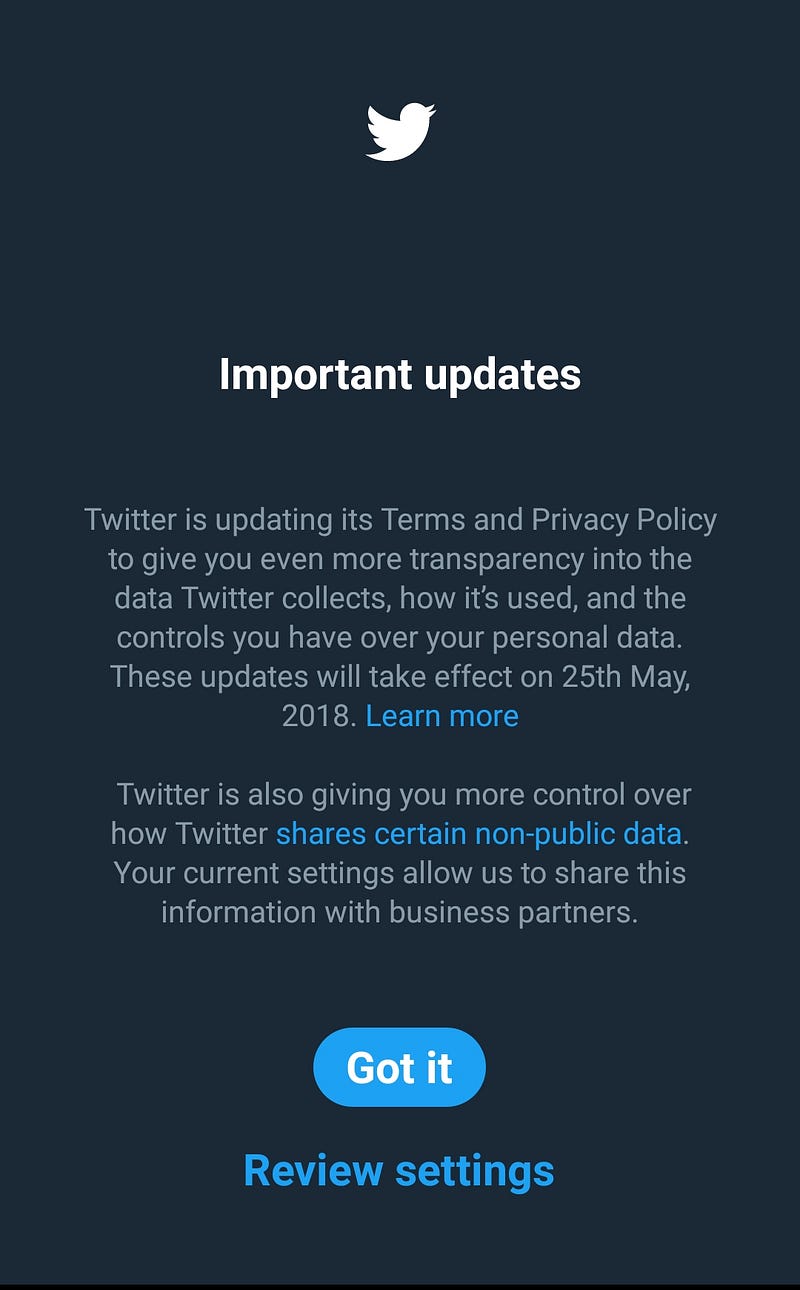“Augustus, perhaps you’d like to share your fears with the group.”
“My fears?”
“Yes.”
“I fear oblivion,” he said without a moment’s pause. “I fear it like the proverbial blind man who’s afraid of the dark.”
John Green, The Fault in Our Stars
Most of us want to be remembered, hopefully for good or for causing a ruckus. We’re delighted when the waiter or customer service rep remembers our names, preferences or our children’s birthday. Isn’t this what separates one business from another?
Nowadays a lot of business transactions happen online, this same principle has been carried on to the online customer experience, companies store the data of customers in order to give them a personalized experience.
The recent Facebook Cambridge Analytica saga got me interested in Data protection laws, a topic that had been hovering around for a while but I never paid interest to.


Nigeria doesn’t have a comprehensive data protection law, the consequence of this is unsolicited calls, texts and messages. My yahoo mail account can attest to being assaulted by many emails from marketers, it’s no wonder I barely use it again.
Data protection is the process of safeguarding important information from corruption, compromise or loss.

Data Protection and Politics
Digging deeper into the Facebook Cambridge Analytica case, In The data we used on the 2016 US presidential campaign, Cambridge Analytica mentioned how and what they used the data for.
“We used the data to identify “persuadable” voters, how likely they were to vote, the issues they cared about, and who was most likely to donate…”
We also relied on the audience segments that Facebook and other online platforms make available to all advertisers. These are based on interests and demographics, to help serve the most relevant ads to the most relevant people.
I often think of how cool it would be to use data like this for next year’s elections in Nigeria but I’m quickly reminded that elections are rather won by rigging and bags of rice, hopefully, next year’s own would be different. I’d be reading How to win elections in Africa to further assess my hypothesis.
Data Privacy and Advertisers
Companies collect data by making customers create accounts, they also use cookies and tags to track and identify potential customers/ customers online.
Cookies are small text files that are placed on your device (computer/smartphone/tablet) by websites that you visit. They are widely used in order to make websites work, or work more efficiently, as well as to provide information to the owners of the site.

Marketers & Advertisers are most likely the major defaulters of data protection laws. While I have my issues with Ads, I learnt from my last outburst that People don’t necessarily dislike Ads, they just want to see relevant Ads at the right time.
With the advent of Data protection laws such as the EU’s General Data Protection Regulation(GDPR) which would be effective on May 25th and South Africa’s Protection of Personal Information (PoPI), many organisations have been sending notifications about what changes to expect.

Advertisers are sure to take the most hit as a result of the forthcoming changes in Data protection laws, I found Eric Eichmann’s suggestion on how to solve the issue of user consent pretty insightful.
A fair and effective path to addressing this issue would be to give internet users the ability to opt for portable consent when it comes to personalized advertising. Collected on one domain, this “consent portability” could then be transferred from one site to another. Rather than requiring users to click on a banner each time they visit a new site, they could make a choice which then applies to every website they visit. They can either accept the principle of personalized advertising or reject it, with the option to change their mind at any time, of course. And if they accept it, the permission is granted within the framework that GDPR requires of businesses, with clear rules and principles. If they reject it, all websites, both big and small, would have to respect this decision, preventing some from using their dominant position to force users to their own version of personalized advertising.
Consent portability creates a level playing field for small, independent websites to compete with the giants for audience and revenue. The impact of the status quo is that a few huge platforms are establishing a quasi-monopoly over personalized advertising that threatens the independence and plurality of all Internet media. It’s in the interest of no one. And a clear set of regulations on the use of data will ensure that all sites abide by the same rules, providing peace of mind for consumers on how their data is used.
Consumers are right to be concerned about protecting their privacy online and how their personal data is used. So why would they want to provide their consent unilaterally? The answer for the consumer lies in the improvements it provides in online experience and ultimately the fact it gives them control of the use of their data. An even better extension of this concept would be to provide consumers an easily accessible privacy center where they can at any time, and from any device and browser environment, manage their settings. With the ability to provide consent or to opt out once across all sites, platforms and devices, consumers would finally be in control of their data whilst gaining a more seamless online experience. The annoying pop-ups as they move from site to site would be a thing of the past. This instantly becomes a more palatable way to receive targeted advertising.
Despite the recent response from people by deleting their Facebook accounts and clearing website cookies, I’ve realised data protection movement is about Trust, in order for us to have the much desired personalized (online or offline) experience, we have to part away with personal information.
How else would anyone remember us?
We need to do a better job of figuring out what the threshold is for how much consumers want a personalized experience and how much they’re willing to give up to have that personalized experience.
Rachel Lowenstein, Adweek
Thank you for reading. If you connected with this article please comment and share to help others find this article 😊



Hello ,
I saw your tweet about animals and thought I will check your website. I like it!
I love pets. I have two beautiful thai cats called Tammy(female) and Yommo(male). Yommo is 1 year older than Tommy. He acts like a bigger brother for her. 🙂
I have even created an Instagram account for them ( https://www.instagram.com/tayo_home/ ) and probably soon they will have more followers than me (kinda funny).
I have subscribed to your newsletter. 🙂
Keep up the good work on your blog.
Regards
Wiki
Hi, thank you for your feedback, say hello to Tammy and Yommo for me *wink*